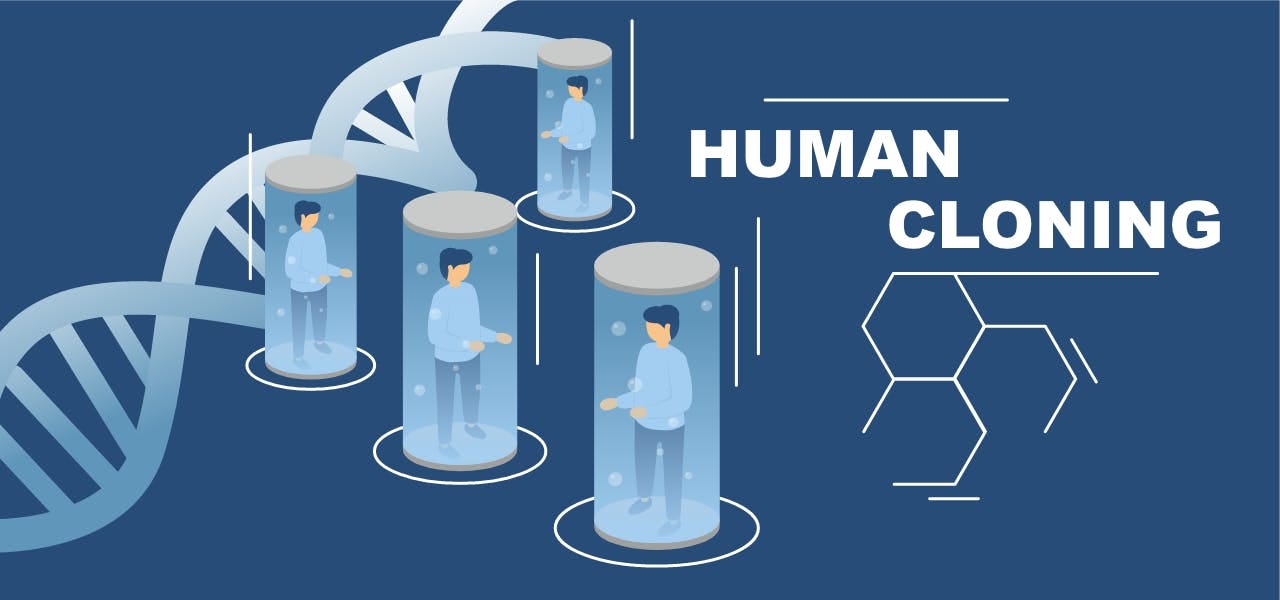The Ethics of Cloning
Written by Crystal Ruizmun
Ever since the rise of CRISPR technology, there has been a constant debate on the ethics of gene manipulation. Gene editing has many benefits such as replacing mutations to healthy genes, preventing hereditary diseases, and many others. Among the good, there are also the bad. Through the use of CRISPR technology, different technologies have been created to begin cloning.
Cloning is the process of generating a genetically identical copy of a cell or an organism through the use of gene replication. Cloning is done asexually and generally in a lab through artificial embryo twinning and somatic cell nuclear transfer.
The first animal that was ever cloned was Dolly the sheep in 1996. A huge controversy was sparked and began the debate on its ethics. The United Nations adopted a Declaration on Human Cloning in 2005, but it was met with mixed support. Many scientists believed cloning was beneficial for the reimplementation of endangered species into the wild and to save many people from debilitating genetic conditions while others believed that it would cause an invasion of privacy and the use of unethical experiments. Those who were against cloning continuously state that there would be many who would abuse the genes without the knowledge of those involved.
In 2008, UNESCO set up a Working Group to investigate a legally binding convention to ban human cloning. The Working Group found that a lack of clarity in international law hindered the development of national regulations or policies. Despite this, member states resisted the idea of a convention.
Although cloning has been generally tested on animals, scientists have begun the research on cloning humans. Many find benefits in this as it can give a wave to children for those who suffer from infertility and can also replicate healthy organs to replace existing unhealthy organs. Those who want to begin cloning humans find benefit in helping those who desperately need it, but there is also the small minority who might abuse the amount of power they possess.
It ultimately resides in the hands of ethical policymakers to find a fault in design or benefit to the people. There is no doubt that gene cloning would be extremely beneficial to society but there is no argument that there will be some who will abuse their role in research.
Where do you stand? Do you believe cloning should be legal or illegal? Is it ethically correct to clone an animal’s genes, let alone a human?
References
Cloning | Definition, Process, & Types | Britannica
Dolly the sheep becomes first successfully cloned mammal | July 5, 1996 | HISTORY
Written by Crystal Ruizmun from MEDILOQUY


